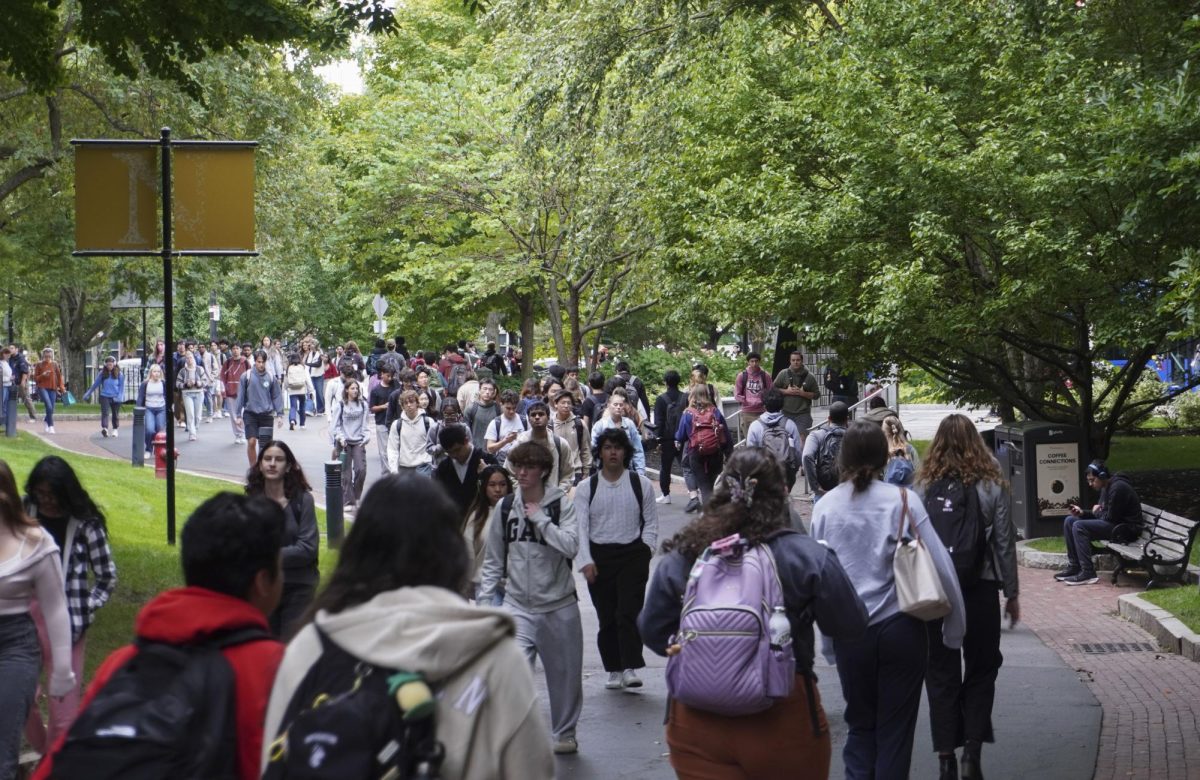By James Abisamra
A majority of college freshmen feel their parents are involved the “right amount” when it comes to making college decisions, according to a study released last week by the University of California (UCLA) at Los Angeles.
At Northeastern, freshmen seem to share the same belief as their California counterparts.
The data from the study, which is considered the largest of its kind, showed 77.5 percent of freshmen thought their parents were involved the right amount in dealing with school officials. Another 73 percent of students said they were pleased with parents’ involvement in choosing courses and college activities. However, one thing not revealed in the study is what the right amount of parental involvement for college students is. Many Northeastern students said they feel parents should play a minimal role on campus.
Jeff Pappalardo, a freshman undecided major, said he doesn’t want much parental involvement.
“The separation is nice. That is the whole point of going to live at college,” he said.
Brendan Weed, a freshman criminal justice major, said he felt similarly. “I enjoy being able to be my own adult and make my own decisions,” he said.
One of the reasons for this perceived absence of parental influence on campus may come from the university taking steps to prevent parents from becoming too involved. Northeastern’s Parent Programs and Services Office helps with this. The university has programs, like online chats and newsletters that are geared to partner with students’ parents, said Susan Brown, associate director of the program.
Brown said the Parent Programs and Services is similar to the Office of Student Affairs, except it deals solely with parents.
“These programs are done with the aim to educate the parents,” Brown said.
By working with the parents and keeping them informed, students can prevent parents from becoming overly involved, Brown said. If students feel they need guidance, they can also turn to places like the Latino/a Student Cultural Center.
“[As] students come in more and more, they realize it is more than a student center, but it is also very familial in nature,” said Sara Rivera, an administrative assistant at the center.
Rivera said students of different racial and ethnic backgrounds often want more parental influence, another aspect suggested by the UCLA study.
“It has more to do with whether or not you are a first generation college student than your race,” Rivera said. “If your parents did not go to college and you have little idea about what college is like, you are going to want more guidance.”
Amal Shumar, student services coordinator for Student Affairs, agrees with Rivera and said the office equally helps students of all ages and races.
Shumar is also a member of the WeCare Program, another on-campus program aimed at providing students with guidance and answers to questions ranging from meal plan issues to having to take a medical leave of absence from the university.
“We try to be proactive rather than reactive,” said Shumar of the program, now in its fourth year. “This is a big school in the middle of College Town, USA and sometimes students don’t know where to look.”
And while some students are grateful for the guidance provided in the various student centers and student programs, most students, like undecided freshman Jeff Eaton, seem to be fine with little guidance.
“After living at home for 18 years, the freedom of college is a plus,” he said









